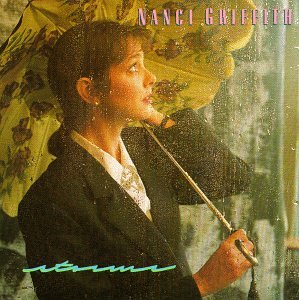
- Format: MP3

Nanci Griffith scored a major crossover hit with Storms (1989). After four long-players for the primarily country-intensive MCA Nashville, she switched to their pop division thanks in part to the overwhelming critical and popular acclaim she had gained from her previous studio effort, Little Love Affairs (1998). Many purists were critical, but along with legendary producer Glyn Johns Griffith unfurled some of her finest musical stories to date. Joining her backing band, the Blue Moon Orchestra, are the intriguing aggregate of Bernie Leadon (guitars/mando-cello/vocals), Jerry Donahue (guitar), Phil Everly (vocals), and Albert Lee (vocals). Once again, Griffith's crystalline-toned resonance weaves almost hypnotically through her realistic and acoustic-based neo-folk Americana. Lyrically, her poignant poetry reveals characters that seem wrought with equal measures of vulnerability and fortitude — such as "sister" in "Drive-In Movies and Dashboard Lights" or the semi-autobiographical narrative "backseat driver from America" on the international breakthrough "It's a Hard Life Wherever You Go." Former Amazing Rhythm Ace and Blue Moon Orchestra co-founder James Hooker (keyboards/vocals) co-wrote several tunes with Griffith, including "Radio Fragile" — their upbeat tribute to Phil Ochs. Among the other sides to have gained significant favor as live performance staples are the infectiously melodic "Listen to the Radio" and the more pensive "Brave Companion of the Road." Not to be missed is another Hooker/Griffith collaboration on the stone gem "You Made This Love a Teardrop" — with the aforementioned Everly on co-lead vocals. While curious enthusiasts have speculated that Storms was a commentary on the artist's concurrent life off-stage, it poised her for the even more pop-oriented follow-up, Late Night Grande Hotel (1991).